Reflection on IATEFL 2018 by Nazlı Öztürk
- Conference Title: 52nd IATEFL Conference and Exhibition 2018 Brighton
- Presentation Title: What is beyond the classroom?
- Presenter: Nazlı Öztürk
- Brief information about the conference
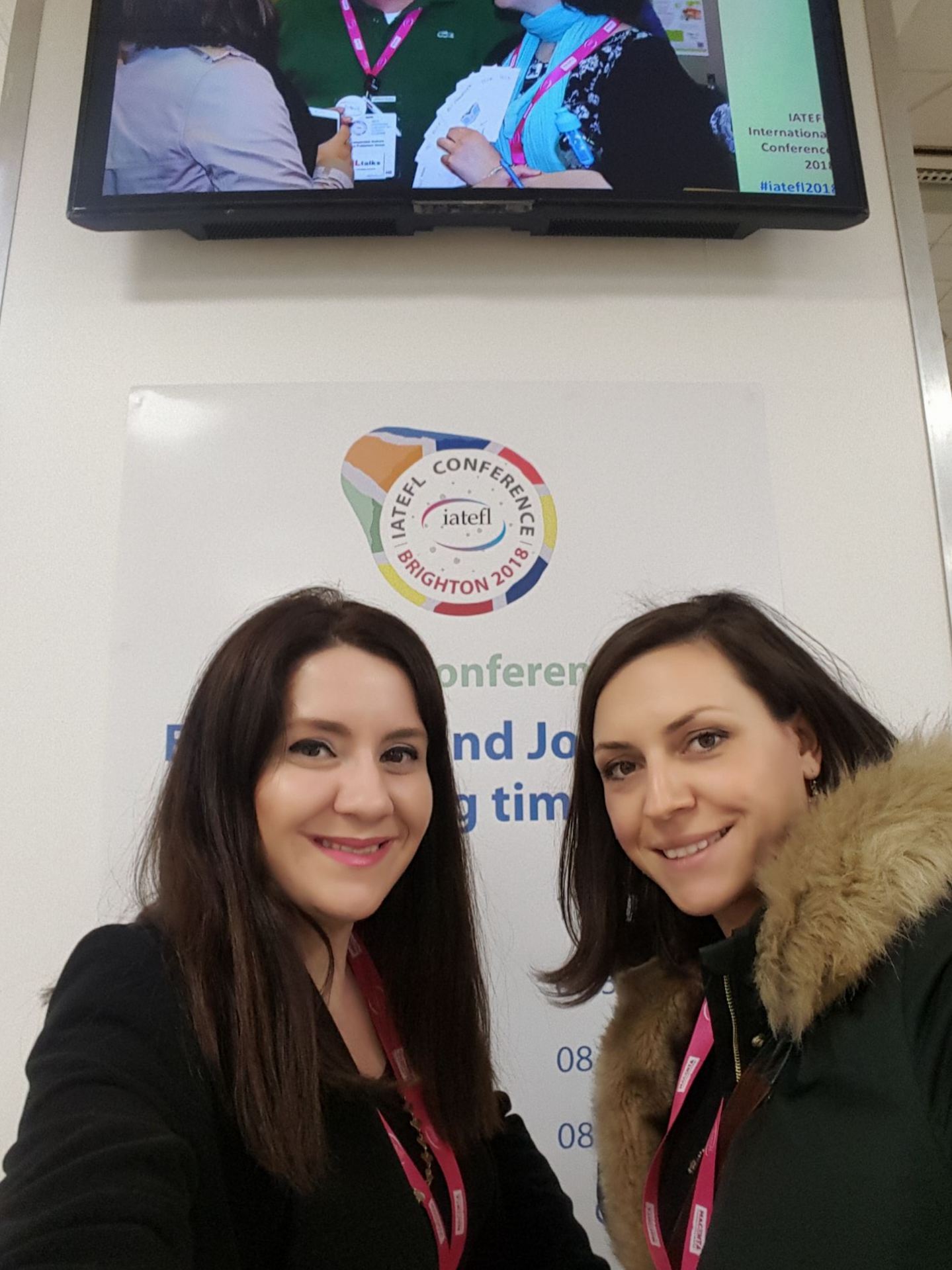
52nd IATEFL Conference and Exhibition, one of the major international events in the field of ELT took place in Brighton, UK this year. Brighton is a lovely coastal town which is warmer and brighter compared to the other parts of England. Besides, luckily, the conference was held in two buildings by the sea: Brighton Hilton Hotel and Brighton Centre a few blocks apart from each other forming a wonderful scenery attendees rushing from pillar to post trying to catch the next presentation they are interested in. IATEFL conference is a huge event that lasts 5 days, starting with the pre-conference events on the first day and those events include the meetings of the SIGs which stands for Special Interest Groups concentrating on different areas of interest in ELT such as ESP, Learning Technologies, Leadership & Management and Business English. Members of these SIGs attend those meetings and a separate admission fee is required to be paid to be able to attend. However, the Welcome Reception and Party is also held on Monday and the Exhibition officially starts on the first day. In the following days, presentations commence each day starting with a “How to” session followed by a Plenary Session. This year’s plenary speakers were Lourdes Ortega, Dorothy Zemach, Brita Fernandez Schmidt, Barry O’Sullivan and John Agard and they all had powerful and wonderful speeches. After that each time slot provided at least 20 different presentations simultaneously that attendees can choose from according to their interests. It is not that easy to choose one from the program and head to a different room where the next talk will be but there was an application which made our lives easier since it provided all the data about the coming talks, information about them and their location, so it was easier to choose one from the coming talks and add it to the list and easily go to the next talk that would take place in another room, most probably far from where we were at that moment. The presentations ended at 18:10 in the evening; however, it didn’t mean that we could go back to our hotel and sleep. There were evening events between 7pm and 9pm planned by the conference committee providing a wonderful opportunity for making new friends. During the day, the exhibition hall served as an international showcase of the latest resources, services and publications from course providers, publishers, digital innovators, game companies and many more. The exhibition also hosted the IATEFL Job Fair where people could meet with employers and browse vacancies. This year almost 3000 ELT professionals attended IATEFL Brighton and it was a wonderful event that any ELT professional should attend at least once in a lifetime.
2. Brief information about my presentation:
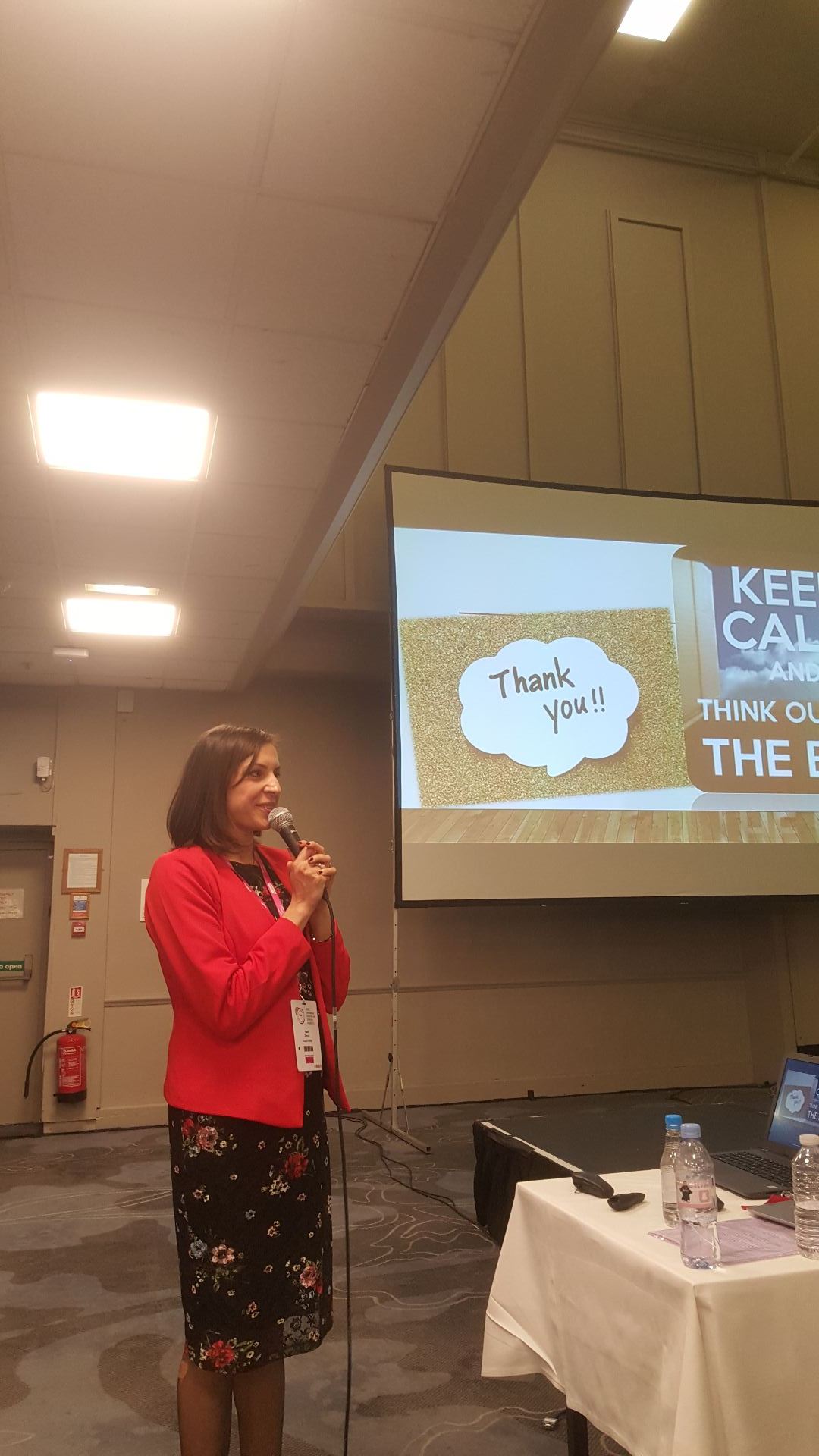
In my presentation, I shared our students’ potential difficulties in relating foreign language classroom practices to their daily lives. In order to create this link, I created some projects and tasks considering the objectives in our syllabus and shared my experience with the audience. Firstly, I talked about our setting and the problems of my students. To be specific, although my students are following a programme of English to be able to embark on their chosen tertiary courses at the university, they concentrate only on their short-term goals – passing the English exams, and forget their long-term goals – the importance of learning English for their future careers. They are also generally indifferent to the opportunities offered by the university.
To gather data on the subjective needs of my learners, I interviewed them on their interests, future plans, learning styles, departments and reasons for studying at this university. What they had in common was that they wanted to go abroad for educational reasons and were curious about their faculty and university courses. This paved the way for me to prepare lessons using resources outside the classroom.
Lesson Ideas
Kolb (1984) states that learning becomes meaningful when enriched by the transformation of experience so, to address their interests, to help them practise skills and strategies in the syllabus objectives and to help them realize the opportunities at the university, I assigned them a variety of projects and designed lessons using
- the university web site
To help students practice skimming and scanning strategies in a meaningful way, I created a poster about the Erasmus programme from the university website as this was related to their future plans of going abroad for educational reasons.
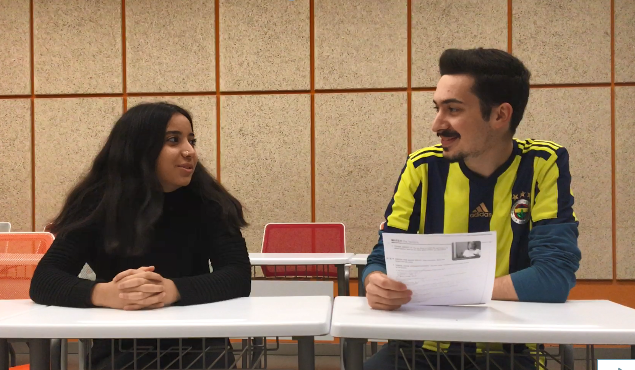
- interviews with first-year faculty students
A common interest centred on the differences between the Prep programme they were on and the university faculty they were aiming for, so I assigned them a mini project in which they interviewed a first-year student to find out these differences. Another lesson was to write a summary and response paragraph through a mini research project. In this way, they practised making a summary using the data.
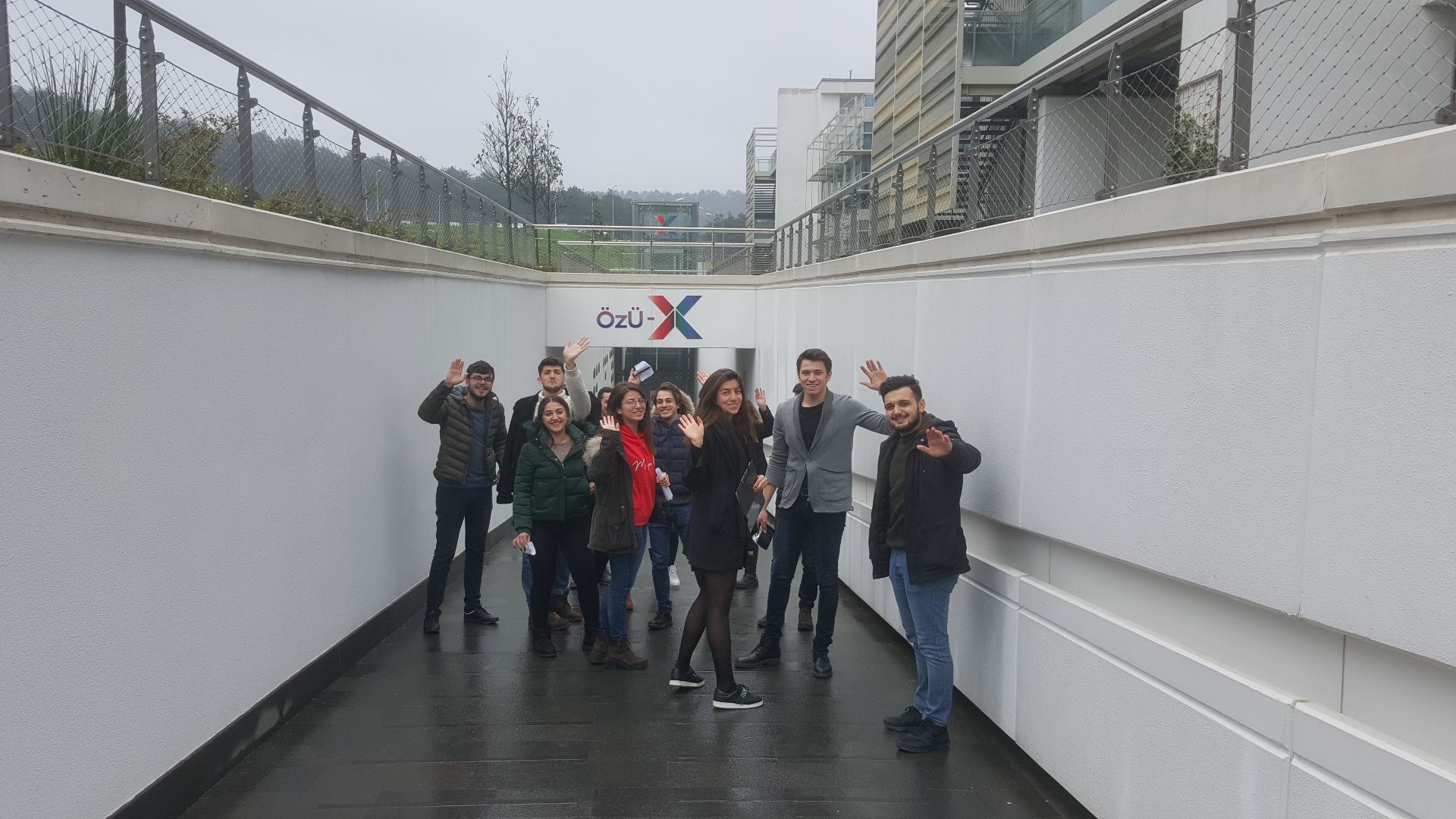
- working at ÖzÜ X, the entrepreneurship and innovation base of the university
There was a course book unit on Innovation so I took them to the ÖzÜ X building which not only houses a variety of technological tools but also information on the student entrepreneurs who had studied at the university. One task was to choose the graduate they considered to be the best innovator and to defend their choice in front of the class.
All in all, the impacts of the lessons were positive. Students were motivated and willing to do more projects related to their field.
Kolb, D. A. (1984). Experiential learning: Experience as the source of learning and development (Vol. 1). Englewood Cliffs, NJ: Prentice-Hall.
- “Highlights from Conference”
There were over 500 presentations in IATEFL Conference Brighton 2018 so it was very difficult for me to choose which presentation to attend. Therefore, I decided to attend a talk called “How to get the most out of this conference (with Susan Barduhn)” and this helped me find my way out. In her presentation, the most useful tip was that participants should focus on their own interest in order to benefit and update themselves in their own field. In this way, they can make new friends, build networks and discuss ideas to enrich their knowledge with the other ELT professionals having similar interests. Regarding this advice, I focused on the presentations giving ideas about classroom practices and I would like to share the ones I really liked in the following section.
Systematic Reflection: Minimizing mismatches in classrooms and enhancing learning by Simon Feros & Laura Fairbrother from The University of Queensland, Australia
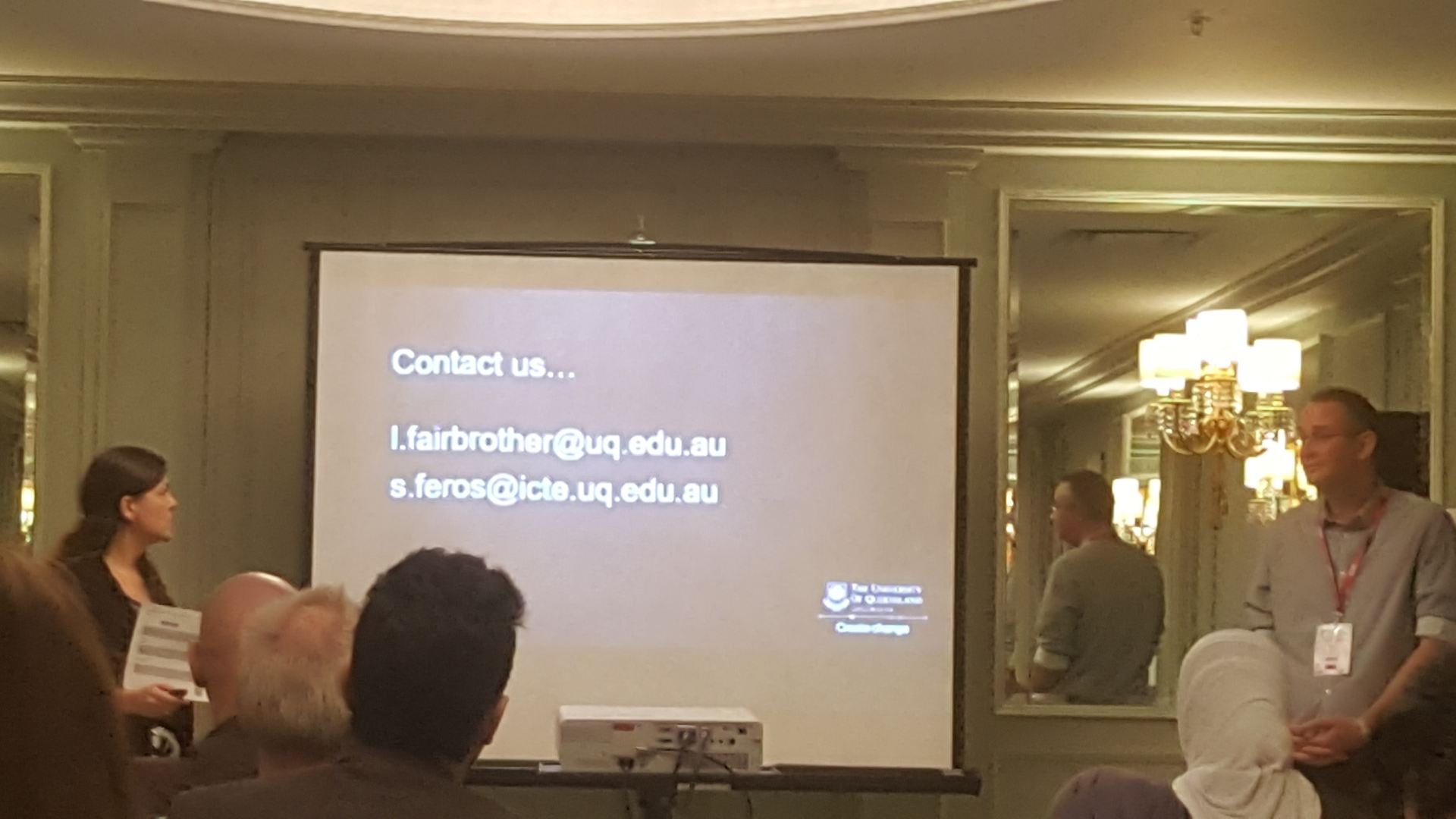 In this presentation, Simon and Laura focused on whether our students learn what we teach and perceptual mismatches between teacher intention and student interpretation. They shared their common classroom mismatches including the purpose of activities, teacher/student roles, and learning strategies. This part of the presentation was quiet interesting because it was similar to our experience. They shared the communication problems between the students and the partners teaching the same class. Then, they presented their ongoing action research into reducing these mismatches through systematic, student-centred reflection and its effect on learner-autonomy. They showed a couple of strategies they used in the classroom during their presentation. I liked the “Stop & Check”, which is used as a reflection moment in the lesson. When students see this sign, they know that their understanding or preference will be checked. And the most useful strategy for me was the “Barometer”. This reflection tool is used for the whole class. They can show how much they understood or how much they liked the topic covered in the classroom using their arms. You can find the detailed information about the strategies mentioned above and more using the link below.
In this presentation, Simon and Laura focused on whether our students learn what we teach and perceptual mismatches between teacher intention and student interpretation. They shared their common classroom mismatches including the purpose of activities, teacher/student roles, and learning strategies. This part of the presentation was quiet interesting because it was similar to our experience. They shared the communication problems between the students and the partners teaching the same class. Then, they presented their ongoing action research into reducing these mismatches through systematic, student-centred reflection and its effect on learner-autonomy. They showed a couple of strategies they used in the classroom during their presentation. I liked the “Stop & Check”, which is used as a reflection moment in the lesson. When students see this sign, they know that their understanding or preference will be checked. And the most useful strategy for me was the “Barometer”. This reflection tool is used for the whole class. They can show how much they understood or how much they liked the topic covered in the classroom using their arms. You can find the detailed information about the strategies mentioned above and more using the link below.
https://docs.google.com/document/d/1jfsaHK-ZLSq63DaLwhRTxKhGlQ3B7-8n8aGKHU6M8qw/mobilebasic
Forum on Engaging teenage learners: games, digital storytelling and YouTubers
Do teenage ELT students prefer serious learning to playing games? – Elena Peresada (StudyCraft)
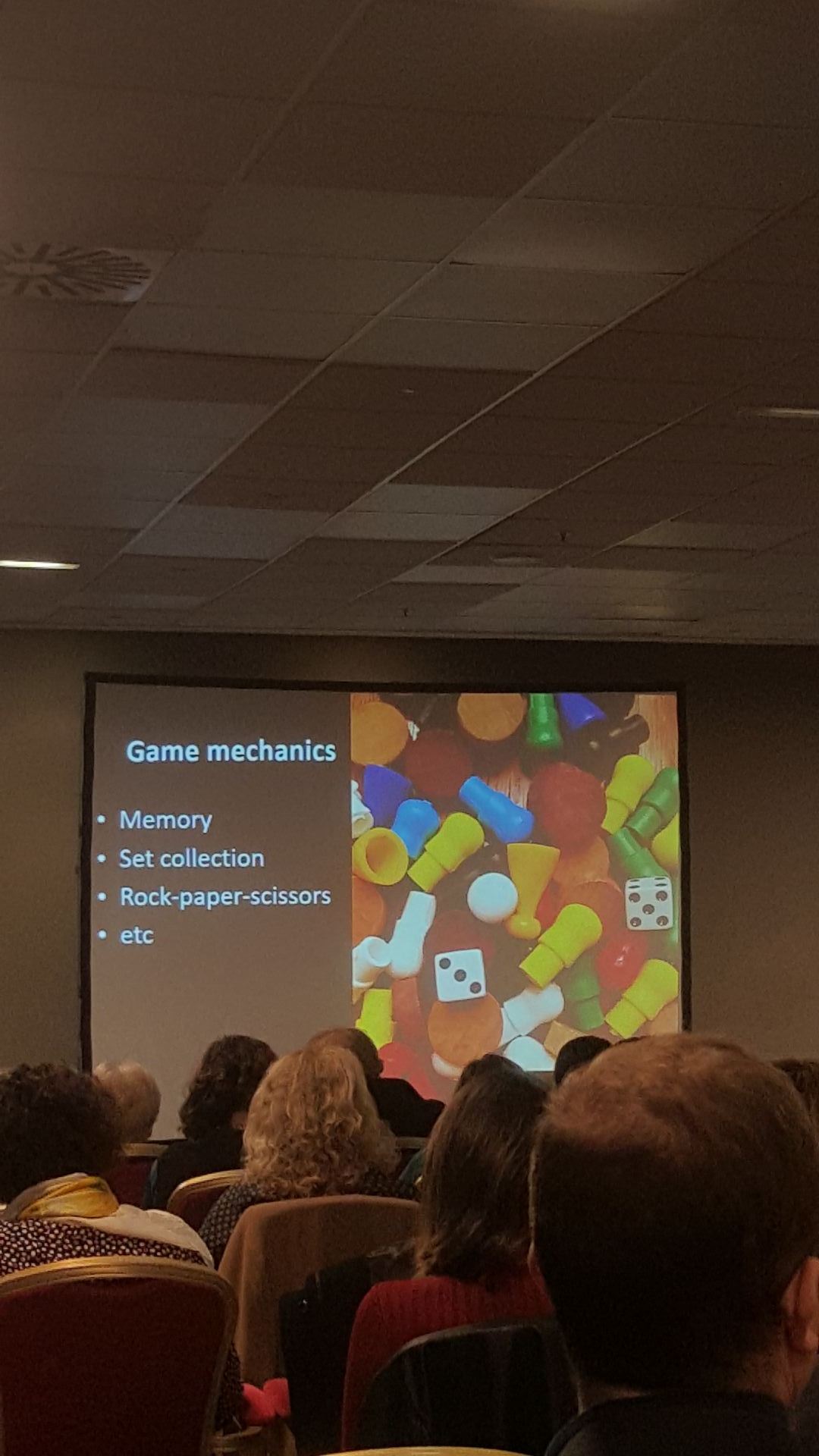
This talk was about how we should benefit from the games to motivate our learners. Although her focus group was generally younger than our students, I found the ideas quite useful for our own learners as well. She especially highlighted the type of the games we should be playing with our students. When there is a sense of losing or winning, the students might not want to be in such a competitive environment. Therefore, she suggested that we should remind them the purpose of playing, which is both enjoying and learning. These games should provide learners to choose or prefer how to proceed, so board games and playing card games can be very beneficial. She shared one of the games and how she played it on youtube. You can find the link below.
Using digital storytelling to explore identities with teenage EFL learners – Alexandra Collins (Living Learning English – Freelance)
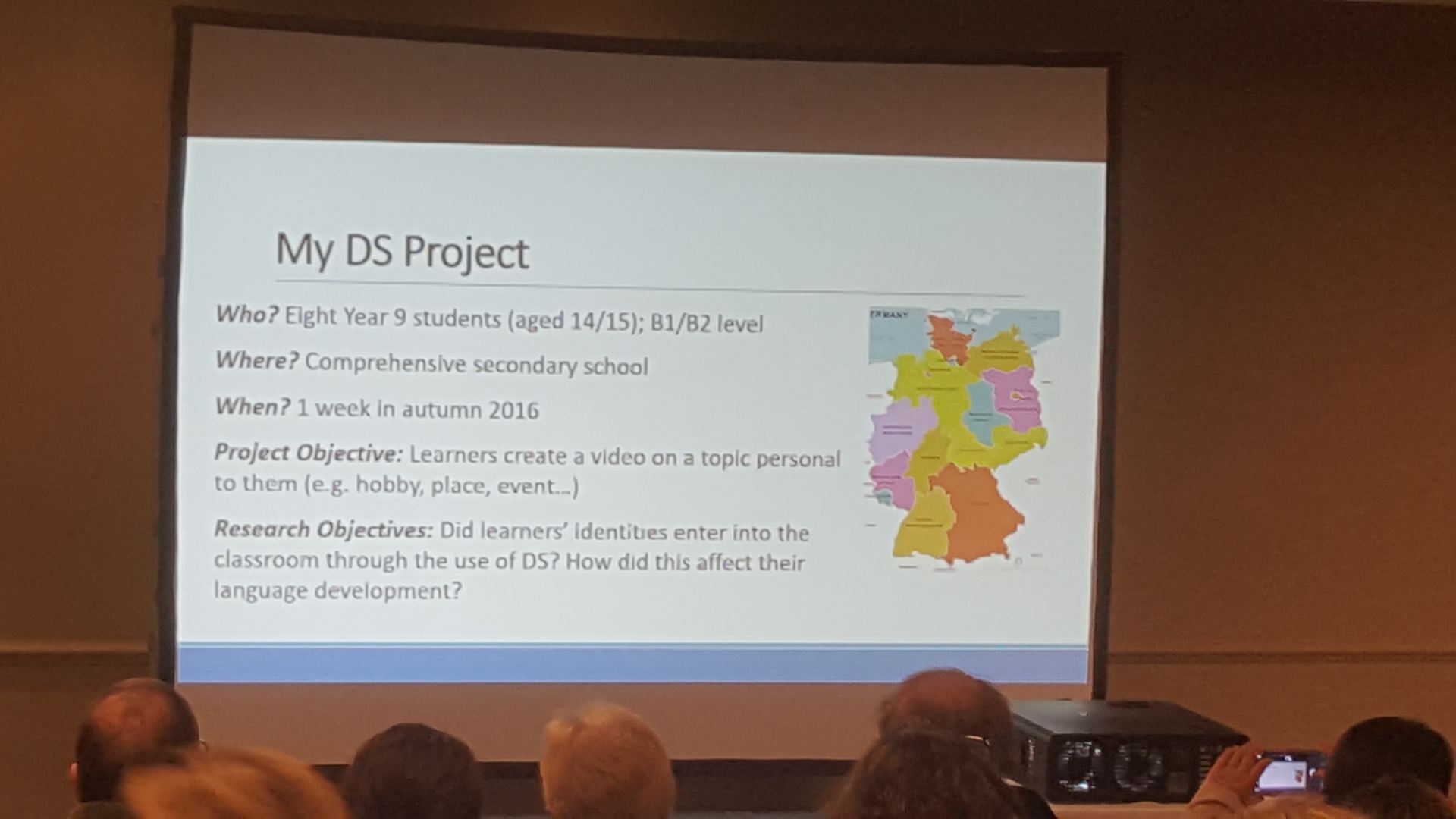
In this talk, Alexandra highlighted the importance of developing students’ sense of self via incorporating opportunities for identity exploration. She did kind of a “Movie Project” through which students could create a video on a topic personal to them. These topics were about their hobbies, events or organizations they attended. She thinks that this is a personal way of seeing and making sense of reality. Therefore, this project did not only give them a chance to convey their own message, but also to be autonomous in finding their own mistakes in pronunciation or word choice during the editing process.

List your house on MLS effortlessly with our step-by-step guide. Maximize exposure and reach potential buyers effectively. Learn the ins and outs of MLS listing to showcase your property professionally. Start the process today and sell your house with confidence using our expert tips on how to list my house on mls
Dynamic logistics in USA embrace the conceivable fate of procedures. Our adaptable technique adjusts to changing business region requests, empowering constant changes and asset improvement. From creative overall arranging designs to flexible warehousing choices, we engage your store network with the versatility it necessities to remain ahead in the ongoing high speed business scene.
Discover the world of literature with Golden Child Publisher, your trusted partner in book publishing. Explore our diverse range of titles and unleash your inner author today.